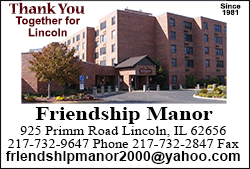|
 Clashes through the night between police carrying riot shields and
demonstrators underscore the challenges China faces in shaping its
vision for Hong Kong's political future as a restive younger
generation challenges its influence in the former British colony. Clashes through the night between police carrying riot shields and
demonstrators underscore the challenges China faces in shaping its
vision for Hong Kong's political future as a restive younger
generation challenges its influence in the former British colony.
Several people suffered minor injuries.
Police cleared the remaining scores of protesters who had forced
their way into the city's main government compound on Friday night.
They were removed one by one, with some carried away, according to
witnesses. Many protesters were still sitting outside the government
compound on Saturday.
"The police have used disproportionate force to stop the legitimate
actions of the students and that should be condemned," said Benny
Tai, one of the three main organizers of the pro-democracy movement.
Hundreds of students and demonstrators had forced their way past a
police cordon and scaled perimeter fences at government
headquarters, close to Hong Kong's financial district, on Friday in
the culmination of a week-long rally to demand free elections in the
Asian financial center.
Police carried signs that read "stop charging or we use force".

Several thousand protesters massed on streets outside the
headquarters in support of those who had stormed inside, shouting
"retreat, retreat, retreat" as police advanced and tried to stop
them charging.
Many protesters used umbrellas to shield them from pepper spray,
while those who got hit used water to rinse their eyes.
"I paid my highest respect to every soldier who defends till the
last moment ... civil disobedience, it continues to happen," student
leader Lester Shum said on his Facebook page.
Hong Kong returned from British to Chinese rule in 1997 under a
formula known as "one country, two systems", with a high degree of
autonomy and freedoms not enjoyed in mainland China. Universal
suffrage was set as an eventual goal.
But Beijing last month rejected demands for people to freely choose
the city's next leader in 2017, prompting threats from activists to
shut down the Central financial district in a so-called Occupy
Central campaign. China wants to limit elections to a handful of
candidates loyal to Beijing.
[to top of second column]
|

SIX PEOPLE ARRESTED
Leaders of the Occupy movement arrived to show their support. They
plan a blockade on Oct. 1, a holiday, that organizers hope will
escalate into one of most disruptive protests seen for decades.
The clashes were the most heated so far in a series of anti-Beijing
protests. Police arrested six people, including teenage student
leader Joshua Wong, who was dragged away by police, kicking,
screaming and bleeding from his arm, after he called on the
protesters to charge the government premises.
"Hong Kong's future belongs to you, you and you," Wong, a thin
17-year-old with dark-rimmed glasses and bowl-cut hair, told
cheering supporters before he was taken away.
"I want to tell C.Y. Leung and Xi Jinping that the mission of
fighting for universal suffrage does not rest upon the young people,
it is everyone's responsibility," he shouted, referring to Hong
Kong's and China's leaders.
"I don't want the fight for democracy to be passed down to the next
generation. This is our responsibility."
The protest came after more than 1,000 school pupils rallied
peacefully to support university students demanding democracy,
capping a week-long campaign that has seen classroom strikes and a
large cut-out depicting the city's leader as the devil paraded in
public.
(Additional reporting by Stefanie McIntyre, Venus Wu, Diana Chan,
Kinling Lo, Donny Kwok, Farah Master and Charlie Zhu; Writing by
Anne Marie Roantree; Editing by Nick Macfie)
[© 2014 Thomson Reuters. All rights
reserved.] Copyright 2014 Reuters. All rights reserved. This material may not be published,
broadcast, rewritten or redistributed.
 |